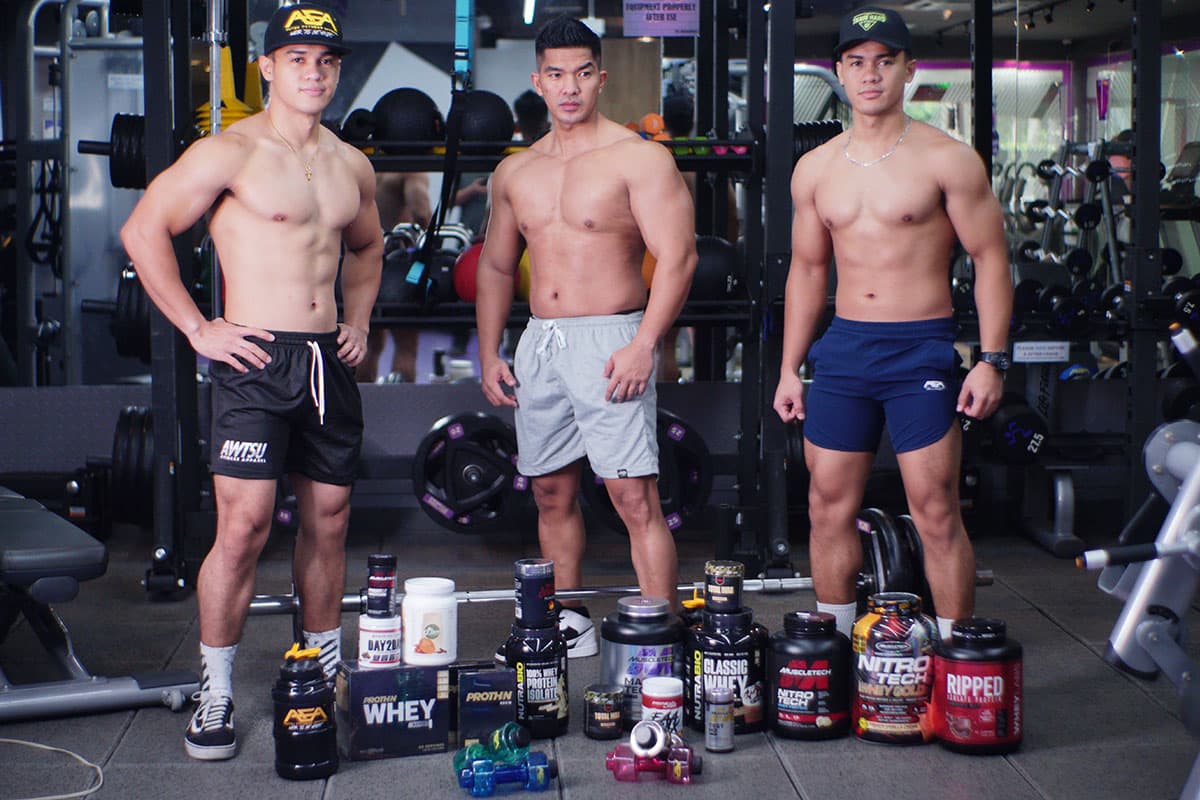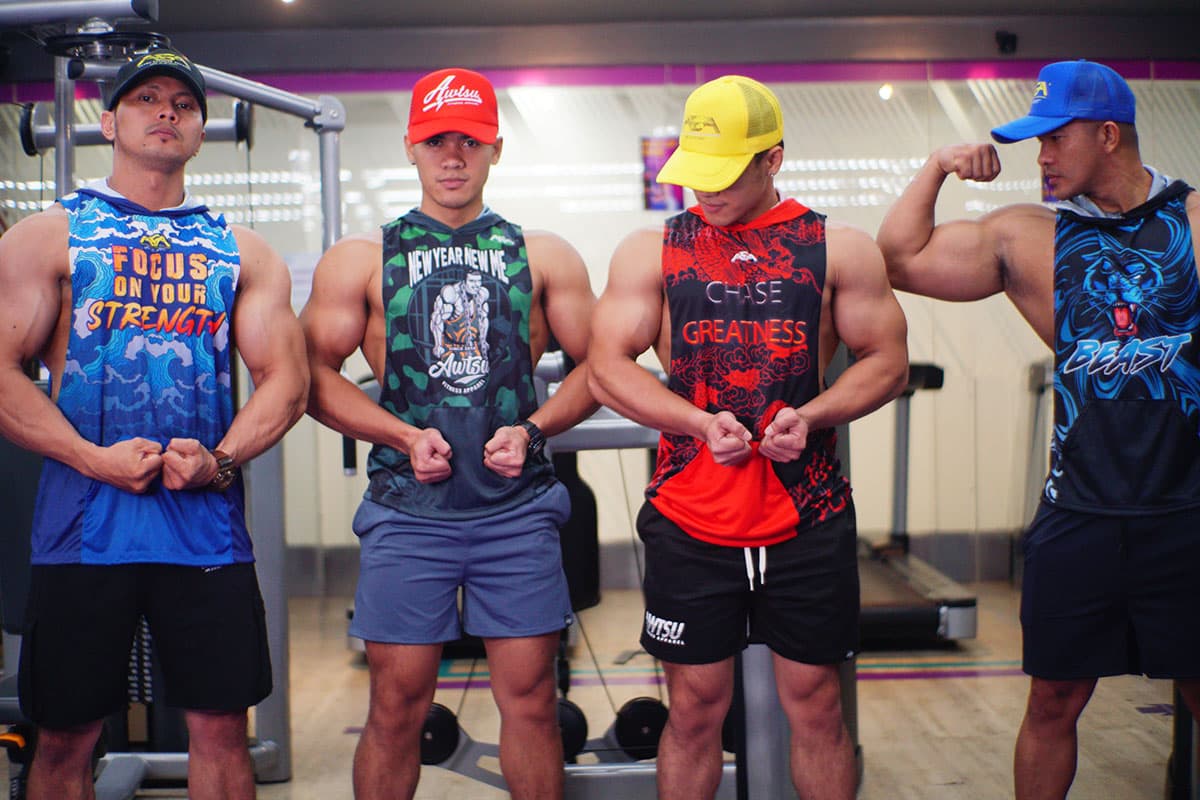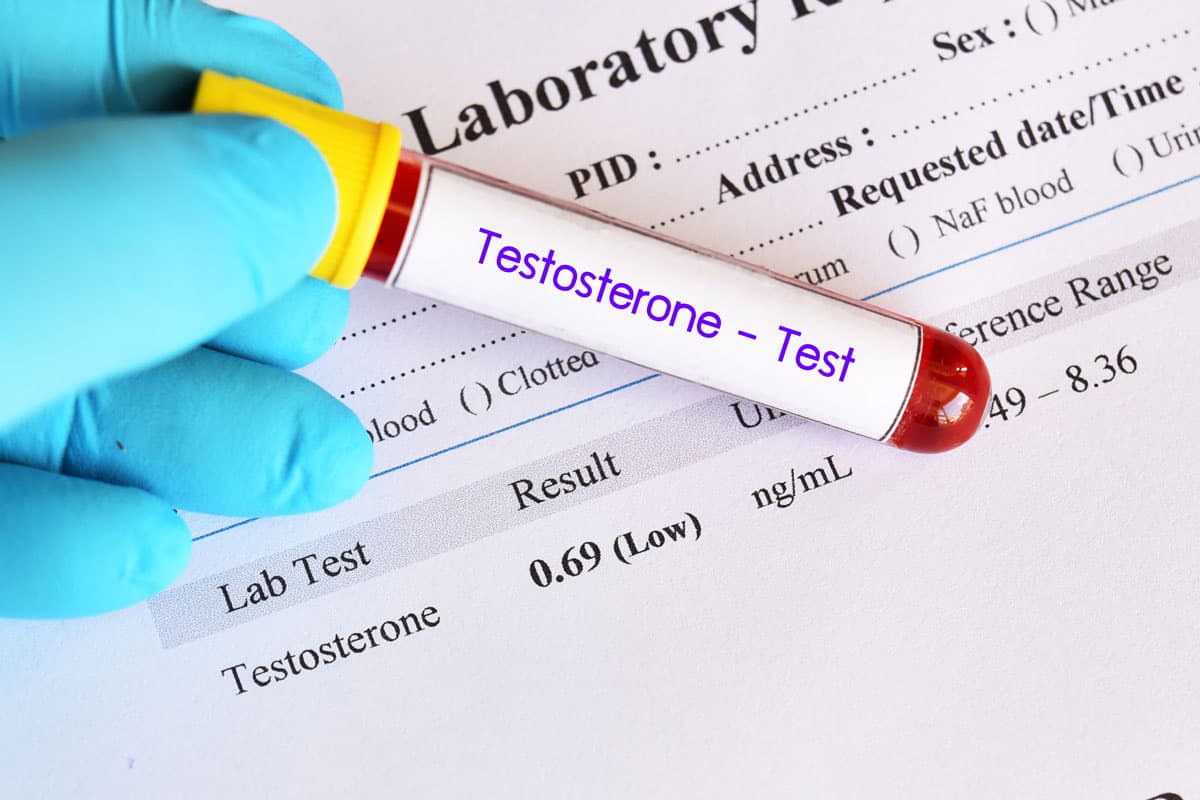Do you love going to the gym? Whether you enjoy lifting weights, running on the treadmill, or taking fitness classes, it's important to make sure your body is getting all the nutrients it needs to stay healthy.
One nutrient that is particularly essential for gym goers is vitamin D. Vitamin D helps your body absorb calcium, which is important for building and maintaining strong bones. But did you know that vitamin D also plays a role in muscle function and strength?
Studies have shown that people with higher levels of vitamin D tend to have better muscle strength and performance than those with lower levels. So if you want to get the most out of your workouts and build strong muscles, it's crucial to make sure you're getting enough vitamin D.
In this article, we will explore the benefits of Vitamin D for gym goers. We will explain why you cannot neglect these essential vitamins and minerals and how to get enough of them for your daily needs.
What is Vitamin D?
Vitamin D is a fat soluble vitamin that our bodies need to function properly. It is called the 'sunshine vitamin' because our bodies make it when we are exposed to sunlight. However, many people do not get enough vitamin D from the sun and so they need to get it from other sources.
The recommended daily intake of vitamin D is 600-800 IU per day for adults. Vitamin D has many benefits for gym goers, including weight loss and muscle building. Vitamin D helps our bodies absorb calcium, which is essential for strong bones and muscles.
In addition to getting vitamin D from the sun, we can also get it from certain foods like fatty fish, egg yolks, and fortified dairy products. Increasing your intake of these muscle building foods can help boost your vitamin D levels naturally.
Sources Of Vitamin D
There are several sources of vitamin D that can help gym goers maintain optimal levels of this essential nutrient. One of the most natural ways to get vitamin D is through exposure to sunlight. Which triggers the production of vitamin D in the body.
However, it's important to balance sun exposure with taking proper precautions. Such as wearing sunscreen and avoiding peak hours when the sun is strongest.
In addition to sunlight, there are also several food sources that contain vitamin D. Fortified foods like milk, orange juice, and cereal can provide a significant amount of vitamin D per serving.
Fatty fish like salmon, tuna, and mackerel are also excellent sources of vitamin D. It's recommended that adults consume at least 600-800 IU (International Units) per day.
To make sure you're getting enough vitamin D, here are five items to add to your diet:
- Salmon: Just 3 ounces contains over 400 IU of vitamin D.
- Fortified milk: A glass of fortified milk can provide up to 100 IU of vitamin D.
- Egg yolks: One large egg yolk contains about 40 IU of vitamin D.
- Mushrooms: Some types of mushrooms exposed to UV light during growth can provide up to 400 IU per serving.
- Cod liver oil: This supplement provides one of the highest amounts of vitamin D at 1,360 IU per tablespoon.
Remember that maintaining adequate levels of vitamin D is crucial for gym goers as it supports overall bone health and muscle function. While sunlight is a natural source, incorporating fortified foods and fatty fish into your diet can help ensure you're meeting your daily needs.
Possible Health Benefits
Vitamin D is essential for gym goers because it can promote strong bones and prevent bone fractures. This is because vitamin D helps the body absorb calcium, which is a necessary mineral for building and maintaining healthy bones.
So, if you're lifting weights or doing intense exercises at the gym. Having enough vitamin D in your system can help support your bones and reduce your risk of injury.
In addition to bone health, vitamin D also plays a crucial role in supporting the immune system. Studies have shown that people with low levels of vitamin D are more susceptible to infections and illnesses.
By keeping your vitamin D levels up, you can potentially boost your immune system and stay healthier overall. This is especially important for older adults who may be more vulnerable to illness.
Lastly, a Harvard University research suggests that vitamin D may have benefits beyond bone health and immune function. For example, studies have linked higher levels of vitamin D with lower rates of certain types of cancer. As well as improved mental health outcomes like reduced depression symptoms.
While more research is needed to fully understand these potential benefits. It's clear that getting enough vitamin D is important for overall health and wellness.
Reasons For Vitamin D Deficiency
Did you know that not getting enough vitamin D can lead to serious health problems?
Research has showed that deficiency in this nutrient long term can cause bone demineralization. Many people are deficient in this essential nutrient, which is necessary for calcium absorption and strong bones. Without enough vitamin D, your risk of bone fractures and osteoporosis increases.
Low levels of vitamin D can also impact your immune system. Making it harder for your body to fight off infections and illnesses. This is especially important for gym goers. As exercise can put stress on the body and increase the risk of illness or injury.
To ensure you're getting enough vitamin D, try incorporating foods like fatty fish, eggs, and fortified dairy products into your diet. Additionally, spending time outdoors in the sun (with proper sun protection) can help your body produce vitamin D naturally.
By taking care of your vitamin D levels, you'll be setting yourself up for success. Both inside and outside of the gym.
Supplementation Of Vitamin D
It's important for gym goers to ensure they are meeting their daily vitamin D requirements. If you're not getting enough sunlight or vitamin D-rich foods, supplementation may be necessary.
Vitamin D plays a crucial role in calcium absorption, which is essential for bone health and muscle function. Studies have shown that low levels of vitamin D can increase the risk of bone fractures. Especially in athletes who engage in high-impact activities like weightlifting or running.
Another study showed that athletes and gym goers supplemeting vitamin D. Can reduce the risk of these injuries and improve their overall performance. It's important to note that while supplementation can help boost levels of vitamin D, it should never replace a healthy diet and lifestyle.
So make sure to eat plenty of vitamin D-rich foods like fatty fish and egg yolks. Also, don't forget to get outside and soak up some sunshine whenever possible!
Effects Of Vitamin D On Muscles
Vitamin D is very important for gym goers because it has a lot of good effects on muscles.
Firstly, vitamin D helps the muscles to function properly. It does this by regulating calcium absorption in the body, which is crucial for muscle contraction and relaxation.
Moreover, having enough vitamin D can help reduce the risk of muscle weakness and pain. This means that gym goers who take enough vitamin D are less likely to experience muscle soreness after an intense workout. In addition, vitamin D can also help prevent bone fracture during workouts.
In conclusion, gym goers should make sure they have enough vitamin D in their diet or through supplements because it helps muscles function properly and reduces the risk of muscle weakness and pain.
Furthermore, it is important to remember that vitamin D also plays a role in bone health and preventing fractures during exercise.
Vitamin D And Workouts
As we learned in the previous section, vitamin D has a significant impact on muscles. But did you know that it's also essential for gym goers? Vitamin D plays a role in many aspects of fitness, including bone health, muscle function, and reducing the risk of injury.
Firstly, vitamin D is necessary for calcium absorption, which is crucial for building strong bones. Without enough vitamin D, your body won't absorb calcium efficiently. This can lead to weak bones and an increased risk of fractures or breaks during exercise.
Secondly, vitamin D is essential for muscle function. It helps with the production and maintenance of muscle proteins, which are necessary for building and repairing muscles after workouts. Without adequate levels of vitamin D, your muscles may not recover as quickly or efficiently from exercise.
Lastly, getting enough vitamin D can reduce the risk of vitamin D deficiency. Which can lead to a variety of health problems such as weakened immune system and increased inflammation. These issues can affect workout performance and overall fitness goals.
In summary, ensuring adequate intake of vitamin D can have many benefits for gym goers. Such as improved bone health and muscle function while reducing the risk of injury and other health problems.
So make sure to get outside in the sun (safely) or consider taking a supplement. To ensure you're getting enough of this essential nutrient.
Vitamin D And Exercise Performance
Did you know that getting enough vitamin D is crucial for gym goers? Not only does it help with calcium absorption, but it can also enhance exercise performance. That's right, this essential vitamin can make a big difference in your workouts.
Research has shown that vitamin D plays a key role in muscle function. Which can directly impact your ability to perform well during exercise. In fact, studies have found that individuals who are deficient in vitamin D may experience decreased strength and endurance.
By ensuring that you are getting adequate amounts of this important nutrient, you can give yourself an edge in the gym. But the benefits of vitamin D don't stop there. This vital nutrient has been shown to reduce the risk of several chronic diseases, including osteoporosis and certain types of cancer.
Plus, it helps your body absorb other essential vitamins and minerals, making it a key part of any healthy diet. So if you're serious about your fitness goals, be sure to get plenty of vitamin D. Both from sunlight and supplements to support your overall health and wellness.
Vitamin D And Bone Density
As we discussed in the previous section, Vitamin D plays a crucial role in exercise performance. Now, let's dive into another essential aspect of Vitamin D - bone density.
Without adequate levels of Vitamin D, our bodies cannot efficiently absorb calcium. Calcium is an essential mineral for strong bones and teeth. Therefore, inadequate Vitamin D levels can lead to a decrease in bone density, which increases the risk of fractures and osteoporosis.
To reduce the risk of vitamin D deficiency and its related health problems. It is important to ensure that you are getting enough through various sources.
Here are four ways to do so:
- Spend time outside: Exposure to sunlight is one of the best ways to get your daily dose of Vitamin D.
- Eat foods high in Vitamin D: Fatty fish like salmon and tuna, egg yolks, and fortified dairy products are all great sources of Vitamin D.
- Take supplements: If you are not getting enough Vitamin D from sunlight or food sources, supplements may be necessary.
- Get regular check-ups: Your doctor can perform blood tests to check your Vitamin D levels and recommend any necessary changes.
In summary, maintaining adequate levels of Vitamin D is crucial for maintaining strong bones and reducing the risk of fractures and osteoporosis. By incorporating these four strategies into your daily routine, you can help ensure that you are getting enough of this vital nutrient.
Vitamin D And Hormone Regulation
Vitamin D is not only essential for strong bones, but it also plays a crucial role in hormone regulation.
Vitamin D helps to regulate the production of hormones such as insulin and testosterone. Which are important for muscle growth and repair. Without adequate levels of vitamin D, these hormones may not function properly, leading to decreased muscle mass and strength.
In addition to its effects on hormone regulation, a study showed vitamin D has been linked to a reduced risk of autoimmune diseases. Such as multiple sclerosis and type 1 diabetes. This is thought to be due to vitamin D's ability to modulate the immune system and reduce inflammation.
However, it is important to note that excessive sun exposure can increase the risk of skin cancer. So it is recommended that individuals obtain their vitamin D from dietary sources or calcium and vitamin D supplements.
Overall, maintaining adequate levels of vitamin D is essential for gym goers looking to maximize their performance and optimize their health. Along with a balanced diet and regular exercise routine, ensuring adequate intake of this important nutrient. Can help support optimal hormone regulation and reduce the risk of chronic diseases.
Vitamin D And Metabolism
As we learned in the previous section, vitamin D plays a crucial role in hormone regulation. But did you know that it also affects metabolism?
Vitamin D helps regulate insulin levels, which can impact weight management and energy levels during exercise. Getting enough vitamin D is especially important for gym goers.
Studies have shown that low levels of vitamin D are associated with reduced muscle strength and increased risk of injuries. However, it's important to note that too much vitamin D can lead to toxicity.
The recommended daily intake for adults is 600-800 international units (IU). But excessive amounts can cause nausea, vomiting, and even kidney damage. One way to increase your vitamin D intake is by consuming fatty fish such as salmon.
Another option is taking supplements, but it's important to consult with a healthcare professional before doing so. A meta analysis of randomized controlled trials found that taking vitamin D supplements can improve muscle strength and reduce the risk of falls in older adults.
Overall, ensuring adequate vitamin D intake is essential for gym goers to maintain optimal muscle strength and energy levels during workouts. However, it's important to do so safely by not exceeding the recommended daily intake. And consulting with a healthcare professional if considering supplements.
Vitamin D And Immunity
Did you know that getting enough vitamin D can actually help boost your immunity? A 2012 study recorded Vitamin D has been shown to play a key role in supporting the immune system. Which is especially important for gym goers who are constantly pushing their bodies to the limit.
When you exercise, your body undergoes a lot of stress and strain. This can lead to inflammation and other issues that can weaken your immune system. However, by ensuring that you're getting enough vitamin D, you can help keep your immune system strong and healthy.
So if you want to ensure that your body is able to handle the demands of working out at the gym. Make sure you're getting enough vitamin D. Whether it's through sunlight exposure or supplements, taking care of your vitamin D levels is an essential part of any fitness routine.
The Link Between Vitamin D and Testosterone
Vitamin D and testosterone have been linked together by several studies and trials in recent years. Vitamin D has been identified as a natural testosterone booster, and this has been supported by studies in healthy overweight men, middle-aged men, and men with Vitamin D deficiencies.
A 2018 study showed, the male reproductive tract contains many receptors for Vitamin D. So it is no surprise that Vitamin D has been linked to improved testosterone levels.
One study looked at healthy overweight men and analyzed their testosterone levels. Some participants received 3,000 IU of Vitamin D daily for one year, whereas others received a placebo (dummy medicine). After one year, the researchers observed a significant increase in circulating testosterone levels amongst men in the Vitamin D group. Meaning most of the group initially had low levels of vitamin D.
A 2018 study sought to test the effects of Vitamin D on sexual function. 114 men were evaluated clinically, biochemically, and sexually. The researchers observed a significant association between high testosterone values and Vitamin D replacement therapy. This was associated with an improvement in erectile function.
Studies have also found similar links between Vitamin D and testosterone levels in Asian men. One 2015 study looked at middle-aged Korean men and found a significant association between testosterone and Vitamin D levels. It was also found that the treatment effect of Vitamin D on testosterone was stronger when there was an underlying Vitamin D deficiency.
All in all, the link between Vitamin D and testosterone is undeniable. Vitamin D acts as a natural testosterone booster and can help to improve testosterone levels. Especially in those with Vitamin D deficiencies.
Frequently Asked Questions
Can You Get Enough Vitamin D From Sunlight Alone?
You might be wondering if you can get enough vitamin D from sunlight alone. Sunlight is a great source of vitamin D, but it depends on where you live and how much time you spend in the sun.
If you live in a place that doesn't get a lot of sun or if you spend most of your time inside, then you might not be getting enough vitamin D just from sunlight.
That's why it's important to get vitamin D from other sources like food or supplements. Vitamin D helps your body absorb calcium, which is important for strong bones and muscles - something that gym goers definitely need!
Can Vitamin D Help With Weight Loss?
Vitamin D is important for many functions in our body, including helping us maintain a healthy weight.
It can help regulate our appetite and also improve insulin sensitivity, which means our bodies can better use glucose for energy instead of storing it as fat.
So if you're looking to shed some pounds, make sure you're getting enough vitamin D through sources like sunlight, fatty fish or supplements.
How Does Vitamin D Affect Recovery Time After Exercise?
Vitamin D is important for people who exercise because it can help them recover faster after a workout. When you work out, your muscles can get sore and tired. Vitamin D helps your body build stronger muscles and bones, which can make it easier to exercise in the future.
It's also been shown to reduce inflammation in the body, which can help with recovery time. So if you want to keep going back to the gym and seeing improvements in your fitness level, make sure you're getting enough vitamin D!
Can Taking Too Much Vitamin D Be Harmful?
Taking too much could cause vitamin D toxicity. While Vitamin D is important for maintaining healthy bones and muscles, too much of it can lead to high levels of calcium in the blood, which can cause nausea, vomiting, constipation, and other health problems.
It's important to follow the recommended dosage and talk to a doctor before taking any supplements.
Is There A Specific Time Of Day When It's Best To Take Vitamin D Supplements?
The best time is with food or shortly after a meal. This helps the body absorb the vitamin more efficiently. Vitamin D is important for maintaining strong bones and muscles, which is why many gym goers take it as a supplement.
However, taking too much can be harmful, so it's important to talk to your doctor about the right dosage for you.
Conclusion
In conclusion, getting enough Vitamin D is essential for gym goers to maintain their health and fitness. While sunlight is a great source of Vitamin D, it may not be enough for some people. That's why taking Vitamin D supplements can be helpful in ensuring you're getting the right amount.
Vitamin D can also aid in weight loss by regulating insulin levels and reducing inflammation. It can even improve recovery time after exercise by decreasing muscle damage and soreness.
However, taking too much Vitamin D can also have harmful effects on the body, so it's important to consult with a healthcare professional before starting any supplement regimen.
And while there isn't necessarily a specific time of day when it's best to take Vitamin D supplements, it's important to take them consistently as directed by your doctor or nutritionist.
Overall, incorporating Vitamin D into your diet and supplement routine can have numerous benefits for gym goers looking to optimize their performance and health.
To wrap it up, don't let vitamin deficiencies hold you back, take action now and check out Awtsu Fitness supplements range or visit the Awtsu Supplement Hub nutrition store in Cainta to supercharge your fitness journey!
References:
https://www.ncbi.nlm.nih.gov/pmc/articles/PMC2129105/
https://www.ncbi.nlm.nih.gov/pmc/articles/PMC3257679/
https://www.ncbi.nlm.nih.gov/pmc/articles/PMC2621390/
https://www.ncbi.nlm.nih.gov/pmc/articles/PMC7071499/
https://www.ncbi.nlm.nih.gov/pmc/articles/PMC6722905/
https://www.ncbi.nlm.nih.gov/pmc/articles/PMC8342187/
https://www.ncbi.nlm.nih.gov/pmc/articles/PMC6047889/
https://www.ncbi.nlm.nih.gov/pmc/articles/PMC7447507/
https://www.ncbi.nlm.nih.gov/pmc/articles/PMC3166406/
https://www.ncbi.nlm.nih.gov/pmc/articles/PMC6198108/
https://www.ncbi.nlm.nih.gov/pmc/articles/PMC3427191/
https://pubmed.ncbi.nlm.nih.gov/25532570/







Hi Team,
i am Ajay from Delhi India...